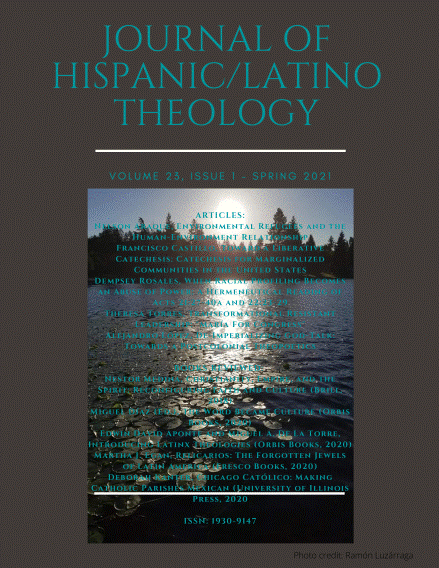Volume 23, Number 1 (2021)
From the Editor
Last year, 2020, was one most of us wanted to leave behind. But most of us will not forget it, because of the illness and death inflicted on our families and communities by COVID-19 and because of the post-election divisions largely created by blatantly false accusations and claims. Unfortunately, this year, 2021, began with right-wing mobs attacking the U.S. Capitol and the constitutional process Congress was conducting at the time.
2021 has inherited COVID-19 as well as political divisions. With the new vaccines, the health crisis is coming under control in the U.S, although not yet across much of the world. With the Biden administration in place and the increasing public willingness never to allow another mob to threaten the people's will, we hope and pray that the current year will help "turn the page" on the recent past and allow the people to begin writing a new chapter.
It is crucial, however, that we do not forget or become silent in response to the voices of the pandemic's victims. It is not possible to hide the large numbers of COVID victims who were Black, Latinoax, Native American, and elderly. The poor have been COVID's victims mostly because of the unequal access to housing and health services the U.S. has accepted as "normal." It is equally indispensable, therefore, that we acknowledge the white privileging pillars on which that "normal" has been historically built. Acceptable racism is a significant and cruel bond that tied COVID's victimization of poor, non-white communities to the right-wing ideology of the mobs that attacked the U.S. Capitol. To this also add the U.S.'s historically ingrained and normalized aporophobia—the fearful disdain of the poor.
The deaths of George Floyd and the many other victims of police violence keep reminding us how far we still are from real justice, real inclusion, and real equality. The vital Black Lives Matter movement needs to be joined by a parallel movement of Latinoax Lives Matter . . . because Latinoax are just as unjustifiably victimized and criminalized in most of the country.
I hope that 2021 will be a significant improvement over its predecessor year. I realize that a new world will not be the result, but I pray that as a people we will move forward towards a more demonstrably inclusive, just, and democratic nation.
This new issue of the JHLT includes five articles. Teresa Torres (University of Missouri, Kansas City), Nelson Araque (Archdiocese of Miami), Francisco H. Castillo (Barry University), Alejandro López (Broward College), and Dempsey Rosales (St. Thomas University, Houston) offer us texts that will provoke readers’ reflection, responses, and renewed dialogues. Several insightful book reviews complete the Spring 2021 issue.
We offer the issue to our readers as we commence our twenty-third volume. The JHLT hopes to continue serving as a "must go to" publication for understanding, exploring, and developing Latinoax theologies and religious studies.
Orlando Espín
University of San Diego
Chief Editor
Editorials
From the Editor
Orlando Espín
Editorial Board
Orlando Espín
A Note on Terminology
Orlando Espín
Articles
Toward a Liberative Catechesis: Catechesis for Marginalized Communities in the United States
Francisco Castillo
When Racial Profiling Becomes an Abuse of Power: A Hermeneutical Reading of Acts 21:27-40a and 22:23-29
Dempsey Rosales
Book Reviews
Nestor Medina, Christianity, Empire, and the Spirit: Reconfiguring Faith and Culture
John Francis Burke
Miguel Díaz (ed.), The Word Became Culture
Allan Figueroa Deck SJ
Deborah E. Kanter, Chicago Católico: Making Catholic Parishes Mexican
Milton Javier Bravo


